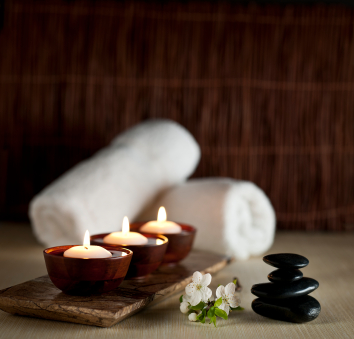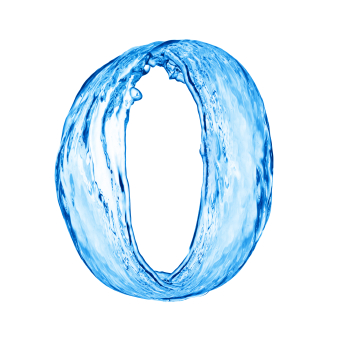Is a spa retreat the key to your soul’s estate?
(S)he enjoys true leisure who has time to improve his soul’s estate. – Henry David Thoreau
If you are anything like me, you’ve worked yourself to the nth degree and are in need of rejuvenation. After all, your soul’s estate is only as valuable as its upkeep, right? However, is there any proven benefits to a spa retreat beyond that incredible boost of endorphins that feed an overall sense of wellbeing?
Evidently, there really is! In fact, contrary to what many believe, newly-published research in Integrative Medicine suggests that the combination of caloric restriction, colonic therapy, meditation and yoga may provide the body with actual physiological benefits beyond the feeling of wellness. Mind you, certain practices like caloric restriction can be downright dangerous if not effectively carried out, reducing much needed vitamins and minerals, resulting in a loss of lean body mass and even taxing the heart. Colonic hydrotherapy, i.e. removing toxins from the intestines, has likewise been questioned, namely because there are few data to support claims of therapeutic benefit and without proper guidance, may result in nausea, vomiting, dehydration and electrolyte imbalance.
However, in this very small study of 15 healthy women and men, a one-week, intensive spa program that focused on three main areas – calories, toxins and stress management — yielded some surprising results. Roughly three to four days before a week at the spa, the participants switched out their normal eating habits for fruit, raw and steamed veggies, salads, juices and herbal teas, 2 tablespoon of olive oil at bedtime, 8 oz of prune juice every morning and laxative teas at night. They were also asked to avoid potatoes, bananas, all grains, pasta, meat, dairy, processed foods, caffeine and alcohol.
At the spa, all received at least four colonic treatments and did 800 calorie juice-fast cleanses (all herbal teas, veg/fruit juices, probiotics, digestive enzymes, herbal laxatives, olive oil, vegetarian liquid protein supplements, vegetarian soup and water with lemon). They also participated in daily structured meditation and yoga programs as well as personal meditation to boost deep breathing, heightened awareness and calm.
The findings? Clearly, all participants dropped weight, which is to be well expected from caloric restriction; this weight loss averaged about 7 pounds. Likewise, there was expected decrease in blood pressure. Blood fat levels, namely total cholesterol, also benefitted, and levels of mercury declined in some participants, which supports the hypothesis that this type of program can help clear the body of certain toxins. Not surprisingly, the researchers also noted a significant decrease in stress, depression and anxiety and saw improvements in anger levels, tension and fatigue. Spirituality scores also improved, probably as a result of meditation and the group appeared to be more intensely unified than before the spa visit.
Researchers say that while the study is quite small, it appears that intensive spa programs may have some real benefits. One thing to note is that the participants experienced changes in sodium and chloride levels. This indicates that some of these interventions do affect electrolyte levels and therefore, can be risky in people who are predisposed to imbalances or on certain medications like diuretics. The researchers also recommend that before participating in ‘extreme spa,’ that you have a complete physical to insure that your body is up to the task.
Extreme spa or gentle spa that focuses on health, balance and internal (re)connection. All may hold the key to estate management. Your soul will thank you!
Read MoreWednesday Bubble: the menopause ‘expert’
Does anyone else find it ironic that in a society where aging is taboo, menopause is the next big ‘thing?’ Yes, retailers, charlatans and ‘experts in everything menopause’ abound and they want you to believe that what they are selling will cure all that ails.
As I have written time and again on this blog, ‘one size fits all’ is a bad approach to health and wellbeing. Universally, many of us experience hot flashes or night sweats or mood swings or dizziness. But individually? Your challenges are unlikely to be exactly the same as mine, which is why I consistently recommend that you see a practitioner before trying any treatment or management strategy. All I can do is provide the information to allow you to make informed choices with someone who is trained in medicine or naturopathy, or herbal therapy or acupuncture or Traditional Chinese Medicine or yoga, or bioidentical hormone therapy or HRT. But take note: despite what we would like, no, love to believe, chewing a menopause gum will not eliminate your hot flashes. Drinking a menopause drink is unlikely to balance out those mood swings. A bed fan may not make you and your partner more comfortable as you sweat the night away. And, a shaman is probably not going to collectively alter a bunch of chakras via a video series.
Am I angry? As a matter of act, I am mad as hell and I am not going to take it anymore. And neither should you.
Am I for sale? No, I am not for sale nor is the blog a platform for others to take advantage of you. My promise since starting this blog echoes how I live my life: straight, no shooter, no bullshit, no games, honesty, sincerity and integrity. I am not trying to convince you that my way is the highway. Rather, my goal is and has always been to provide you with the most current, scientifically-driven information so that decisions and choices are well-informed and methodical. And when I review a product, it is an honest review framed by full disclosure. Moreover, while I try to be as objective as possible, this blog is not journalistically driven but rather, informed by my personal experiences and may, at times, reflect my subjective views. As always, I leave to you to decide what information you can use and what information you want to dispose of.
If you are wondering about the impetus for this post, let’s just say that for months now, I have participated in a LinkedIn group where I observed the voices of the well informed being drowned out by the collective who don’t have your best interest at heart. And, after one of these members crossed a line and used the platform to send me a form letter blatantly inquiring if I would pimp her product and become a shill for her program, I decided to sever both ties.
The Menopause Industrial Complex is becoming very noisy. It is going to be harder and harder to discern reality from fantasy and real strategies from snake oil. When someone calls themselves an ‘expert’ step back and do your homework. Look deeply into their background, credentials and experience. Ask about their training, skill set and think about their motivation. Then step back and do it again. And then talk to other women who have used what they are selling. Always question testimonials, studies that only survey a bunch of people via the web or have only been conducted in animals. A money back guarantee is not a guarantee of success. And one size fits all rarely works. Mostly? Trust your gut. If it smells like a rat and looks like a rat, it’s probably a rat.
Read More
Got Stress?
Did you know that April is Stress Awareness Month? All I can say is that maybe some of us need an entire year! That’s why I as devoting today to stress busting posts with tips aimed at ameliorating some of that stress out of your life, and in turn, ameliorating some of the more unpleasant parts of the transition. And while I can’t make any guarantees, I can confirm that learning to relax and let go can pave the way to wellbeing.
A few highlights from the Flashfree archives await!
From December, 2011: Mindfulness, meditation and stress. Learning to bring on the relaxation response can go a long way towards health and happiness.
From November, 2011: Yoga, insomnia and sleep quality. Don’t know about you but when I don’t sleep well, I react in ways that are not always beneficial. Apparently, yoga not only promotes better sleep patterns, but also, helps to boost stress resistance.
From March, 2011: Try a little mindfulness. It appears that by breaking down the components of one’s experience, you may be better equipped to handle a variety of situations. And although this particular information applies to hot flashes, the reality is that it is likely useful in all aspect of life.
From July, 2009: Why I bake. Sometimes simply incorporating pleasurable activities into our lives can help alleviate daily stressors. One of the web’s top social researchers says that baking is her path towards relaxation.
From September, 2009: The best medicine. Want to feel better? Laugh…to the point of tears.
From August, 2008: L’Chaim. Women gravitate towards ‘tending and befriending.’ No wonder; social support can go a long way towards alleviating stress.
What tricks of the relaxation trade work best for you? Care to share them?
Read MoreWednesday Bubble: Coregasm?
I ran across an article earlier in the week referencing a new study demonstrating a link between exercise and orgasm. And thought: “hold on.” Yet, a deeper dive into the topic demonstrates that it might very well be true, at least for some women. And while I admit that I am not a fan of the term “coregasm,” I could very easily become a fan of sexual arousal or pleasure during exercise; the premise intrigues me as I start to wonder if there is a way to combat aging issues of sexual desire/dysfunction through certain workouts.
Anyone for an “Exercise-O?” But I digress…
Researchers from the famous Kinsey Sex Institute at the University of Indiana in Bloomington write that “orgasms that occur outside of explicitly “sexual” contexts have received much less attention in sexuality research,” and are considered “anomalies, even pathological.” One such non-sexual behavior is apparently physical exercise, noting that “in recent years, popular magazines and Internet blogs have described exercise-induced orgasms, frequently identifying them as ‘coregasms’ due to the association between the type of exercise, i.e. those that work on the core, and orgasm.” However, they also say, gratefully, that this terminology might be incorrect due to a lack of evidence linking orgasm to core muscle activity.
So, why is this important anyhow (besides the obvious)?
Orgasm is incompletely understood and for women in particular, it’s often linked to a variety of factors, including sexual arousal, environment, life stressors, partner intimacy and caring and of course, lubrication. And, in my research I’ve discovered that for some women who experience exercise-related orgasm, they may start very early before they participate in sexual activity with a partner, necessitating counseling and assistance in transferring the ability from sports to a human, if you will. Moreover, as the researchers say, given the attempts to enhance sexual arousal, perhaps this research can start to shed some light.
Consequently, they surveyed 530 women between the ages of 18 and 56 who reported experiencing exercise-induced orgasm or exercise-induced sexual pleasure (i.e. coming close to orgasm during exercise) via email messages. The results, which were published last November in Sexual and Relationship Therapy are intriguing:
- 40% or more of women reported having had experienced exercise induced orgasm or sexual pleasure during exercise 11 or more times in their lifetime
- Almost 44% said that the first time it happened, it was during abdominal exercises, and over 50% reported having an orgasm during situps or crunches within the past three months. Other types of exercise that appeared to spur on recent orgasm included weight lifting (26.5%), yoga (20%), biking or spinning (15.9%), swimming or water aerobics (17.9%), running (13.2%) and walking or hiking (9.6%)
- Many of these same exercises were reported by women who experienced sexual pleasure, including biking/spinning, sit ups/crunches, lifting weights and yoga.
So, how do women feel about these experiences? Apparently, most say that while they are happy about these experiences, those who actually experience orgasm while exercising also express feeling embarassed or self conscious, fearing discovery by others if they vocalize their pleasure. Two women* I spoke to told me that if they are alone, they rarely do anything to stop it although they do control any overt visible displays. In public, they let it go on for as long as they can without losing ‘control’ and then deliberately redirect attention to the exercise. In fact, in the study, at least a third of women in the survey in either group reported that they could control their experience.
Women who orgasm during physical activity also say that it occurs without sexual fantasies, which suggests that perhaps there is a component of orgasm that is totally unrelated to sex. Yet, there are some women who associated sexual thoughts first, noting that they are very aware how many reps or time spent exercising will bring on an orgasm.This begs the chicken/egg question: does pleasure while exercise beget adjustment of thinking beget orgasm? Moreover, some women reported being motivated to exercise to reach orgasm or experience sexual pleasure, which takes away the spontaneous aspect of any hypothesis.
Regardless, the two women I spoke with in my side research shared some advice for those of who are fortunate enough to have experienced this. If you’re new to the exercise-O, game, Natalie offers this: “it takes a bit of self-control so in the beginning, you have to figure out what’s happening (“is this what I think it is?!”), acknowledge it and then purposefully redirect your attention to your surroundings.” For the more experienced, Ashley said that women should enjoy it. “You are lucky. Once you recognize what’s happening, enjoy it until you reach that point where you NEED to vocalize or publicly display your experience.” At that point, she adds, “I highly advise a quick “oh, I’ll save it for later…” and similar to Natalie’s advice, she says to redirect your thoughts.
Ironically, both women caution that if you are exercise-O prone, to stay away from moving objects, such as biking on the street or skiing, noting that the obvious: the moment it might take to calm your parts can mean an serious accident!
The researchers caution that more study is needed, especially since women were recruited online and that there was no quality measurement tool with which to gauge questions and answers. They also say that future research might want to focus on men’s experiences with exercise induced orgasm and sexual pleasure. Moreover, the triggers of either are still unknown. Still, the fact that I was able to quickly find two women who have experienced this phenomenon tells me that there are likely a lot more out there.
I’m intrigued. This could open up an entire new world. And I would love to see more of these types of studies done in women 50 and older. Until then? I prefer the term exercise-O over coregasm. But that’s just me. And this bubble ain’t burst. How refreshing!
*Names changed to protect identities.
Read More
Bringing back the woo-woo…or the ‘ain’t no woo woo.’ Mindfulness, meditation and stress
Are you familiar with the end of the year crunch? I’m in the midst of it and although life is scheduled to slow starting next week, I am finding that I am having difficulty keeping up. So, today, I’m bringing back the woo woo in hopes that it might influence my own inability to calm down the adrenals right now.
Apologies for being self-serving. To be truly honest, this is one of my favourite posts of this year so I’m bringing it back. One word at a time. Let’s start with the first:
Relaxation.
It’s so elusive for many of us. And yet, so important to our overall health and wellbeing. In fact, researchers are finally discovering how relaxation actually counters changes that occur in our bodies that result from exposure to constant stressors.
For decades, Dr. Herbert Benson, founder of the Mind-Body Institute in Cambridge, MA and an associate professor at Harvard University, has been writing about the relaxation response, a “mind-body intervention that elicits deep changes in the physical and emotional response to stress.” Strategies that elicit the relaxation response include meditation, yoga, tai chi, Qi gong, deep breathing, controlled muscle relaxation and guided imagery. And although many would like to point to the “woo woo” factor at-play, an evolving and wide body of published literature is indicative of how interested the medical community is in the mid-body connection and the positive changes that these practices promote, including a slowing or heart rate, a reduction in blood pressure, improvements in blood sugar and fats, and even boosts in our immune system. However, what has long eluded researchers is what actually happens in the body to achieve these improvements.
In a novel study published in 2008 in PLoS ONE, Dr. Benson and his colleagues looked closely at 19 volunteers who had practiced relaxation response strategies (e.g. meditation, yoga, repetitive prayers) for as long as 20 years and compared them to 20 novices, individuals with no relaxation practice experience. These novices were provided with training sessions for 8 weeks that included information about how to reduce daily stress and the relaxation response and a 20 minute, individually-guided session comprising diaphragmatic breathing, a body scan and meditation.For 8 weeks thereafter, the novices then used a 20-minute relaxation CD at home and were asked to review the informational brochures. Blood samples and analysis of gene expression between experienced and novel relaxation practices, and pre- and post-training were then compared.
Importantly, while the researchers observed distinct changes in the genes in experienced relaxation practitioners compared to novices, when the novices started to incorporate relaxation practice into their lives, they also started to express similar positive alterations in their genes. Moreover, these changes are directly related to how cells respond to stress and create free radicals and inflammation that can lead to long-term damage. Additionally, type of relaxation strategy that was practiced was of no important; by achieving a relaxation state, individuals could make positive changes in their cellular structures thought to promote health.
Both inner and outer psychological states and environmental factors play a role in how women experience peri and post-menopause, their self-esteem, attitudes and severity of symptoms. If a daily practice of some sort of relaxation strategy can actually alter genes in a way that improves health and well-being, why can’t that daily practice also improve the menopausal/midlife experience?
While I’ve long embraced the idea, I’ve never actually made a concerted effort to incorporate some sort of relaxation strategy into my daily activities. I’m going to change that. Ain’t no woo woo but a woot woot so far as I can tell.
Read More










